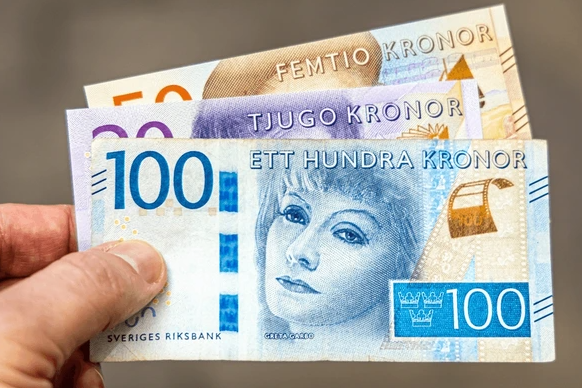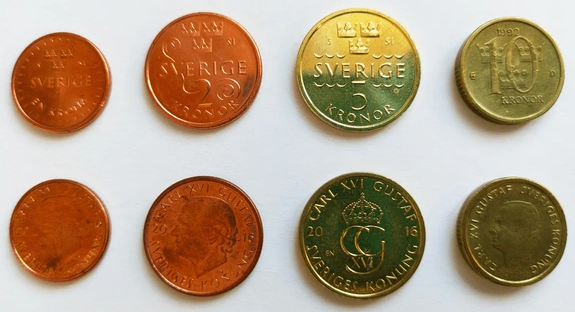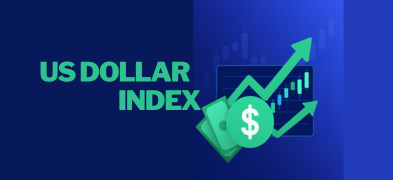Important Information
This website is managed by Ultima Markets’ international entities, and it’s important to emphasise that they are not subject to regulation by the FCA in the UK. Therefore, you must understand that you will not have the FCA’s protection when investing through this website – for example:
- You will not be guaranteed Negative Balance Protection
- You will not be protected by FCA’s leverage restrictions
- You will not have the right to settle disputes via the Financial Ombudsman Service (FOS)
- You will not be protected by Financial Services Compensation Scheme (FSCS)
- Any monies deposited will not be afforded the protection required under the FCA Client Assets Sourcebook. The level of protection for your funds will be determined by the regulations of the relevant local regulator.
Note: Ultima Markets is currently developing a dedicated website for UK clients and expects to onboard UK clients under FCA regulations in 2026.
If you would like to proceed and visit this website, you acknowledge and confirm the following:
- 1.The website is owned by Ultima Markets’ international entities and not by Ultima Markets UK Ltd, which is regulated by the FCA.
- 2.Ultima Markets Limited, or any of the Ultima Markets international entities, are neither based in the UK nor licensed by the FCA.
- 3.You are accessing the website at your own initiative and have not been solicited by Ultima Markets Limited in any way.
- 4.Investing through this website does not grant you the protections provided by the FCA.
- 5.Should you choose to invest through this website or with any of the international Ultima Markets entities, you will be subject to the rules and regulations of the relevant international regulatory authorities, not the FCA.
Ultima Markets wants to make it clear that we are duly licensed and authorised to offer the services and financial derivative products listed on our website. Individuals accessing this website and registering a trading account do so entirely of their own volition and without prior solicitation.
By confirming your decision to proceed with entering the website, you hereby affirm that this decision was solely initiated by you, and no solicitation has been made by any Ultima Markets entity.
I confirm my intention to proceed and enter this website Please direct me to the website operated by Ultima Markets , regulated by the FCA in the United KingdomWhat Currency Does Sweden Use Today?
Sweden uses the Swedish Krona (SEK) as its official currency. Often abbreviated as kr in domestic usage and represented as SEK in global forex markets, the krona is issued by Sveriges Riksbank, Sweden’s central bank.
Despite being a member of the European Union, Sweden does not use the euro, choosing to retain the krona due to domestic economic preferences and the outcome of a national referendum.
In retail settings and online transactions, prices in Sweden are always listed in kronor (plural of krona), and consumers transact entirely in SEK. Euro is not accepted for everyday purchases.

What Does Sweden Money Look Like?
Swedish currency consists of both banknotes and coins featuring notable figures from Swedish culture:
Banknotes:
- 20 kr – Astrid Lindgren (author of Pippi Longstocking)
- 50 kr – Evert Taube (singer and songwriter)
- 100 kr – Greta Garbo (actress)
- 200 kr – Ingmar Bergman (film director)
- 500 kr – Birgit Nilsson (opera singer)
- 1,000 kr – Dag Hammarskjöld (former UN Secretary-General)
Coins:
- 1 kr, 2 kr, 5 kr, 10 kr – Modern Swedish coins are minimalistic in design and made of nickel-plated steel or copper alloy.
This visual identity reinforces Sweden’s national pride and cultural independence in monetary design, unlike euro notes which are standardized across the Eurozone.

Why Does Sweden Not Use the Euro?
Sweden does not use the euro because a 2003 national referendum rejected it, with 55.9% voting against adoption. Although Sweden is an EU member, it avoids joining the required Exchange Rate Mechanism (ERM II), allowing it to legally keep the Swedish krona as its currency.
Key Reasons:
2003 Referendum: Majority Rejected the Euro
On 14 September 2003, Sweden held a national referendum on whether to adopt the euro. The result was decisive:
- 55.9% voted against joining the Eurozone
- 42.0% voted in favor
- Voter turnout was high, at 82.6%
Sweden Avoids ERM II Intentionally
Adopting the euro requires membership in the Exchange Rate Mechanism (ERM II) for at least two years. Sweden has deliberately chosen not to join ERM II, which allows it to legally postpone euro adoption indefinitely, even though it’s technically required as an EU member.
Desire for Monetary Sovereignty
By keeping the krona, Sveriges Riksbank maintains full control over Sweden’s monetary policy, including setting interest rates and managing inflation. This allows for policy decisions tailored to Sweden’s economic needs, without being tied to European Central Bank decisions.
Strong Public and Political Opposition
Public sentiment remains broadly opposed to adopting the euro, even years after the referendum. Swedish governments both center-left and center-right, have respected this democratic outcome and continue to uphold krona usage.
Sweden does not use the euro because of a democratic rejection in the 2003 referendum, a legal strategy to avoid ERM II, and a policy preference to retain monetary independence through the Swedish krona. This decision reflects long-term economic strategy and public consensus.
Krona vs USD: Forex Market Analysis
In the forex market, the Krona vs USD (USD/SEK) is a moderately traded pair, often reflecting broader macroeconomic shifts such as:
- US Dollar strength driven by Federal Reserve policy.
- Riksbank rate decisions—especially when diverging from ECB or Fed trends.
- Global risk sentiment, as the krona is sometimes treated as a “risk-on” currency.
As of July 2025, 1 US dollar equals 9.51 Swedish kronor. Over the past month, the USD/SEK exchange rate has ranged between 9.41 and 9.76, reflecting moderate volatility in response to shifting interest rate expectations from both the Federal Reserve and Riksbank.

USD to Krona Exchange Rate: What Influences It?
Interest Rate Differentials
The Riksbank and the Federal Reserve set key rates that influence carry trade dynamics. For example, if the Fed maintains high rates while the Riksbank is dovish, SEK weakens against the USD.
Inflation and CPI Reports
Sweden’s inflation trend impacts forex traders’ expectations for monetary tightening or easing.
Safe-Haven Flows
During global uncertainty, the USD tends to strengthen, pushing the USD/SEK higher.
Krona USD Forecast: What Traders Are Watching
Traders evaluating the Krona USD forecast in H2 2025 are closely monitoring:
- Riksbank’s monetary guidance: Will they follow the ECB’s possible easing cycle or take a more hawkish path?
- US economic data: Particularly labor market and inflation, which directly impacts Fed policy.
- Energy and export performance: As a small open economy, Sweden’s krona is sensitive to changes in global demand.
Analysts expect USD/SEK to remain concentrated in the 9.1–9.8 range through Q3 2025, barring unexpected economic or central bank developments.
Key Popular Forex Pairs Involving SEK
While not as liquid as majors like EUR/USD or USD/JPY, the USD/SEK and EUR/SEK pairs remain important for traders looking to diversify or take positions based on Nordic and EU macro trends.
Popular forex pairs involving the krona:
- USD/SEK – U.S. Dollar vs Swedish Krona
- EUR/SEK – Euro vs Swedish Krona
- SEK/NOK – Swedish Krona vs Norwegian Krone
These pairs tend to have higher spreads but can be useful for regional or commodity-based trades.
Conclusion
Sweden’s continued use of the Swedish krona (SEK) reflects a clear preference for monetary sovereignty, public consensus, and flexible economic management. Despite being part of the EU, Sweden’s choice to avoid euro adoption has allowed its central bank, the Riksbank, to tailor policy specifically to domestic conditions.
From a trading perspective, the USD to SEK exchange rate has been relatively stable in Q3 2025, hovering near 9.5, with analysts expecting the pair to remain range-bound between 9.1 and 9.8, barring any major monetary shifts.
At Ultima Markets, we continue to monitor the Krona vs USD dynamics closely. As central banks adjust their policy stance in response to inflation data and global growth signals, the Krona USD forecast remains a key watchpoint for forex traders seeking opportunities in macro-driven currency pairs.
Stay ahead of the market with Ultima Markets’ real-time insights, technical breakdowns, and global macroeconomic updates, helping you trade with clarity and confidence in today’s volatile currency landscape.
Disclaimer: This content is provided for informational purposes only and does not constitute, and should not be construed as, financial, investment, or other professional advice. No statement or opinion contained here in should be considered a recommendation by Ultima Markets or the author regarding any specific investment product, strategy, or transaction. Readers are advised not to rely solely on this material when making investment decisions and should seek independent advice where appropriate.












